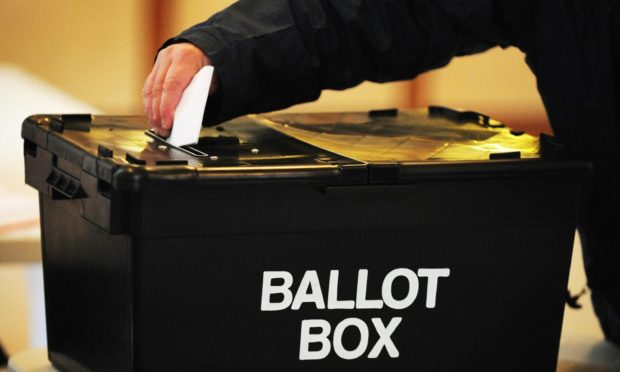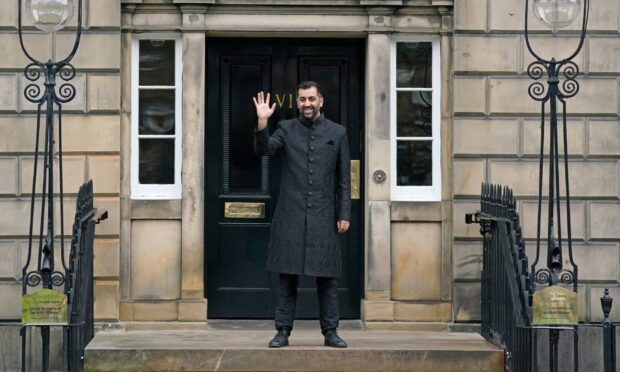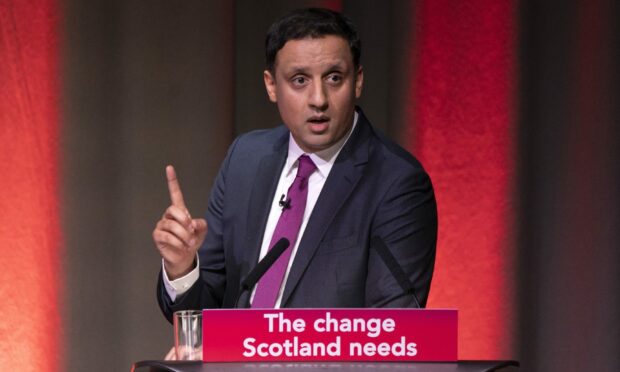Humza Yousaf’s first big test at the ballot box in charge of the SNP will come when voters across Scotland go to the polls at the next Westminster election.
His party’s polling numbers have been less than impressive as of late and threats of a Labour resurgence north of the border mean key seats may be at risk.
Hints that the Scottish Conservatives will encourage supporters to vote tactically against the SNP could put the nationalists under more pressure – but how worried should they be?
What are the Tories saying?
A Scottish Tory source told The Times they want the party faithful to “vote smart” at the next UK election by backing the strongest anti-independence candidates in each seat no matter what.
That would mean some loyal Conservative backers lending their vote to Labour, who will be fighting to oust Rishi Sunak from 10 Downing Street.
The source said Mr Yousaf’s ascension to power meant there was a real chance to “end nationalist dominance” at Westminster, even if that requires “putting normal party politics to one side”.
In some seats in the north of Scotland, Douglas Ross’ Conservatives are a distant third and would have no prospect of ousting SNP MPs.
His party’s polling has significantly dropped over the past year in the wake of Boris Johnson’s partygate scandal and the disastrous premiership of Liz Truss.
Tory candidates in areas where they are best primed to take on the SNP would be hoping Labour and Lib Dem supporters back them in return.
They would hope for this to help them in the north-east, where the party will be defending three seats against Mr Yousaf’s party at the next election.
A party spokesperson said: “We will always urge voters to back the Scottish Conservatives in each and every election.
“However, the electorate is sophisticated and aware of the dynamics in individual constituencies.”
Labour said the Scottish Tories had “accepted that they have lost the next general election”.
Meanwhile, Aberdeen-based SNP Westminster chief Stephen Flynn said: “It will surprise no one to see the dreadful better together band announcing their reunion.”
How do the polls look?
Support for the SNP slumped during the party’s leadership election and that trend has continued since Mr Yousaf was victorious.
A Savanta survey released on March 31 found just 39% of voters north of the border planned to back the nationalists.
🚨NEW Scottish Westminster VI for @TheScotsman
First Scottish VI since Yousaf elected leader
🎗️SNP 39% (-3)
🌹LAB 33% (+1)
🌳CON 19% (+2)
🔶LD 6% (=)
⬜️Other 4% (+1)1,009 Scottish adults, 28-31 March
(change from 15-17 Feb) pic.twitter.com/ZSFfXq2HTX
— Savanta UK (@Savanta_UK) March 31, 2023
By contrast, Labour has been on the rise. In the Savanta poll, 33% of the electorate planned to back Anas Sarwar’s party.
If that were to be replicated at the next Westminster election, Labour would be a sure bet to take some seats from the SNP.
But where exactly would Mr Yousaf’s party be under threat, and would tactical support from the Tories be a crucial factor in swinging seats?
How would this play out in the north and north-east?
Labour has traditionally struggled to make much headway in Scotland’s more rural constituencies, and will be hoping to make most of their gains in the central belt.
But the Western Isles seat – which the party held until 2005 – is an exception and will be a key target at the next vote as ex-Westminster journalist Torcuil Crichton fights to oust veteran MP Angus MacNeil.
Just over a fifth of the local electorate backed the Conservatives in 2019, meaning tactical voting could help out Labour.
Elsewhere, Highland businessman Angus MacDonald is hoping to oust ex-SNP leader Ian Blackford for the Lib Dems in Ross, Skye and Lochaber.
It’s another area where there is a notable Conservative vote, even if the party has no real hope of being able to win the seat.
But elections expert Allan Faulds, who runs Ballot Box Scotland, is uncertain unionist parties working together would have too much of an impact.
He told the Press and Journal: “One of the things we saw by 2019 was a lot of constituencies have already self-sorted.
“People have already done this tactical voting, there’s probably not that much more ground left to make up.”
Mr Faulds also said he doubts too many Labour supporters would return the favour by tactically backing Tory candidates.
That would be bad news for the Conservatives in the north-east, where the SNP will be hoping to gain seats from them.
Mr Faulds said: “When you’re dealing with the Aberdeenshire seats, there are already very few Labour voters there. The Conservatives can’t really rely on any return tactical voting.”



Conversation